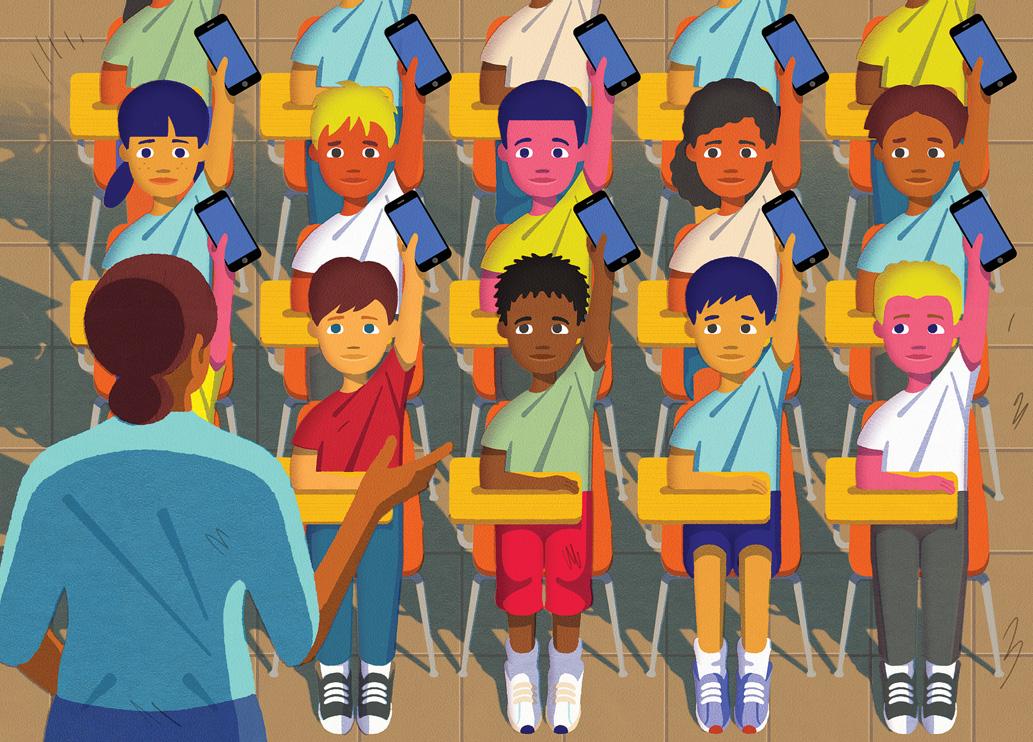
THE CANADIAN WILDFIRES were caused by space lasers? The U.S. government is run by lizard people? The COVID vaccines contain microchips? Nope, nope and nope. That all may seem obvious, but a surprising percentage of people believe such nonsense: an Abacus survey from June of 2022, for example, found that a quarter of Canadians think that it is possibly (14 per cent) or probably true (11 per cent) that COVID vaccines include secret chips designed to monitor and control their behaviour. Put another way, 3.3 million Canadians were pretty sure there were microchips in the vaccines and another 4.2 million were open to the idea. (To be clear: no microchips.) It's easy to mock these kinds of offthe-rails beliefs, but we shouldn't. In my work as a professor and author, I've been researching public representations of science for decades-including how misinformation and pseudoscience are disseminated online and I still need to remind myself to dial back the snark. People believe, share and act on harmful misinformation for complex reasons: maybe they're under financial stress, or they're experiencing mental health challenges, or they distrust government.
But, these days, there's also the problem of volume. Humans are bombarded with about 74 gigabytes of information every day, which is roughly equivalent to watching 16 movies. We check our phones more than 100 times a day. Plus, the incentives baked into our attention economy-likes, follows and retweets-are all rigged to encourage the sharing of questionable content. This ridiculously chaotic information environment could cause any adult to fall for things they shouldn't.
This story is from the September 2023 edition of Maclean's.
Start your 7-day Magzter GOLD free trial to access thousands of curated premium stories, and 9,000+ magazines and newspapers.
Already a subscriber ? Sign In
This story is from the September 2023 edition of Maclean's.
Start your 7-day Magzter GOLD free trial to access thousands of curated premium stories, and 9,000+ magazines and newspapers.
Already a subscriber? Sign In

A Teacher's Tale
My career in Quebec ended because I chose to keep my hijab

Top Marks
InSaguenay, Quebec, Ecole de l'Etincelle embodies the school of the future

Modernize Parental Leave
Canada's birth rate is dropping, and the cost of living is partly to blame. A more supportive leave plan would make parenthood more affordable

"I spent years trying to learn English.Now I use ChatGPT."
AI isn't perfect, but it helps me write complex emails and understand Canadian culture

MY PREDICTION - The National School Food Program Will Transform Kids' Health
When students have access to nutritious food, they do better in school and life

FOOD
The exorbitant cost of food will have ripple effects on the restaurant industry and grocery stores. The good news? There's a plan to save the country's salmon supply.

MY PREDICTION - New Mortgage Rules Will Drive Up Housing Prices
Looser lending policies will encourage more people to buy homes they can't afford in the first place

HOUSING
Politicians will spar over how to tackle the housing crisis. Falling interest rates will draw young people into the real estate market. And a rude awakening is coming for homeowners renewing mortgages.

MY PREDICTION - Stuctured Literacy Will Help Level the Educational Playing Field
Canadian students have struggled to read and write. That stops this year.

EDUCATION
Quebec's classrooms will take centre stage in the secularism debate. Chatbots will help students create A-plus work, while others will grade themselves. And thousands of international students will be sent home.